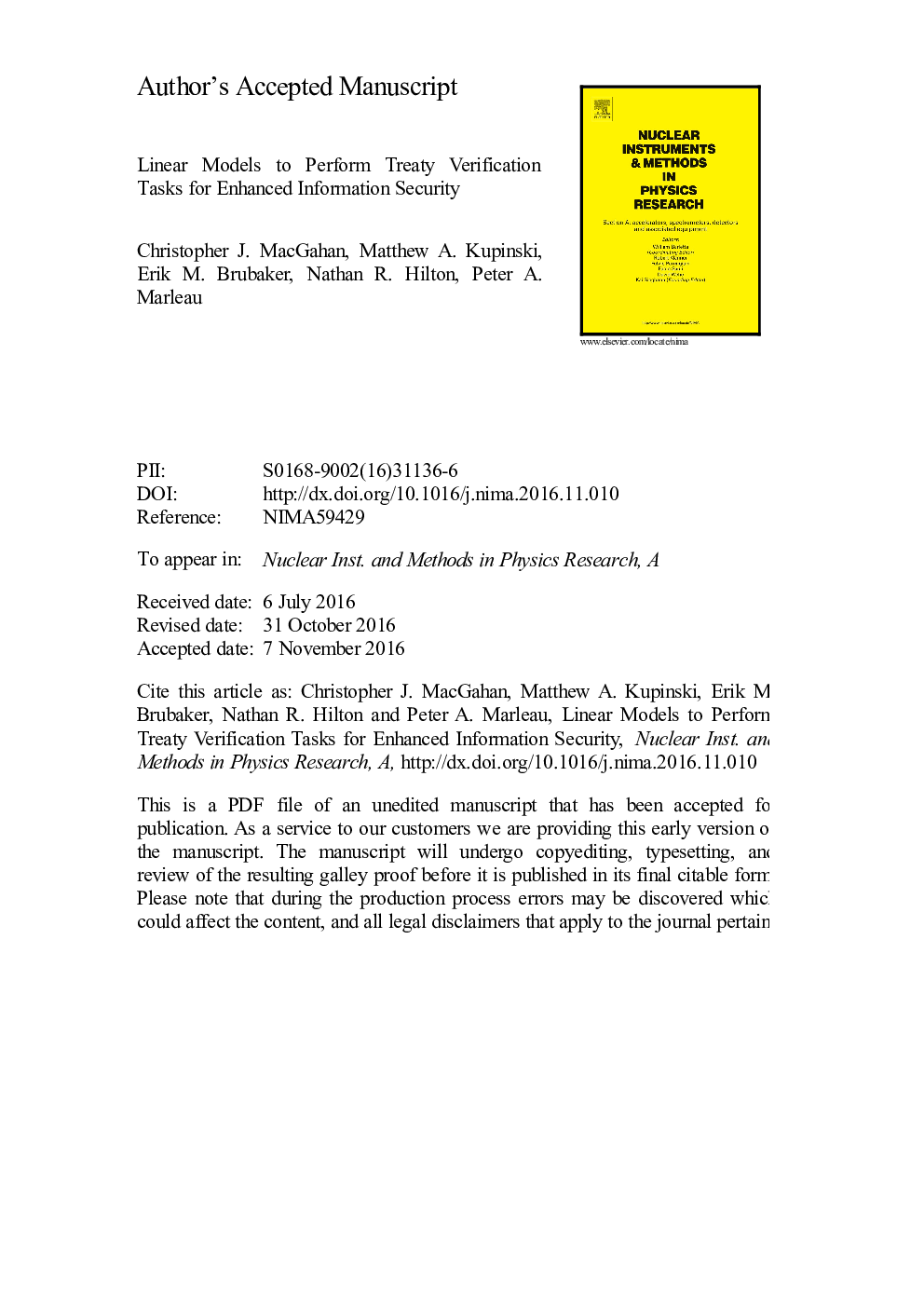| Article ID | Journal | Published Year | Pages | File Type |
|---|---|---|---|---|
| 5493195 | Nuclear Instruments and Methods in Physics Research Section A: Accelerators, Spectrometers, Detectors and Associated Equipment | 2017 | 36 Pages |
Abstract
Linear mathematical models were applied to binary-discrimination tasks relevant to arms control verification measurements in which a host party wishes to convince a monitoring party that an item is or is not treaty accountable. These models process data in list-mode format and can compensate for the presence of variability in the source, such as uncertain object orientation and location. The Hotelling observer applies an optimal set of weights to binned detector data, yielding a test statistic that is thresholded to make a decision. The channelized Hotelling observer applies a channelizing matrix to the vectorized data, resulting in a lower dimensional vector available to the monitor to make decisions. We demonstrate how incorporating additional terms in this channelizing-matrix optimization offers benefits for treaty verification. We present two methods to increase shared information and trust between the host and monitor. The first method penalizes individual channel performance in order to maximize the information available to the monitor while maintaining optimal performance. Second, we present a method that penalizes predefined sensitive information while maintaining the capability to discriminate between binary choices. Data used in this study was generated using Monte Carlo simulations for fission neutrons, accomplished with the GEANT4 toolkit. Custom models for plutonium inspection objects were measured in simulation by a radiation imaging system. Model performance was evaluated and presented using the area under the receiver operating characteristic curve.
Keywords
Related Topics
Physical Sciences and Engineering
Physics and Astronomy
Instrumentation
Authors
Christopher J. MacGahan, Matthew A. Kupinski, Erik M. Brubaker, Nathan R. Hilton, Peter A. Marleau,
